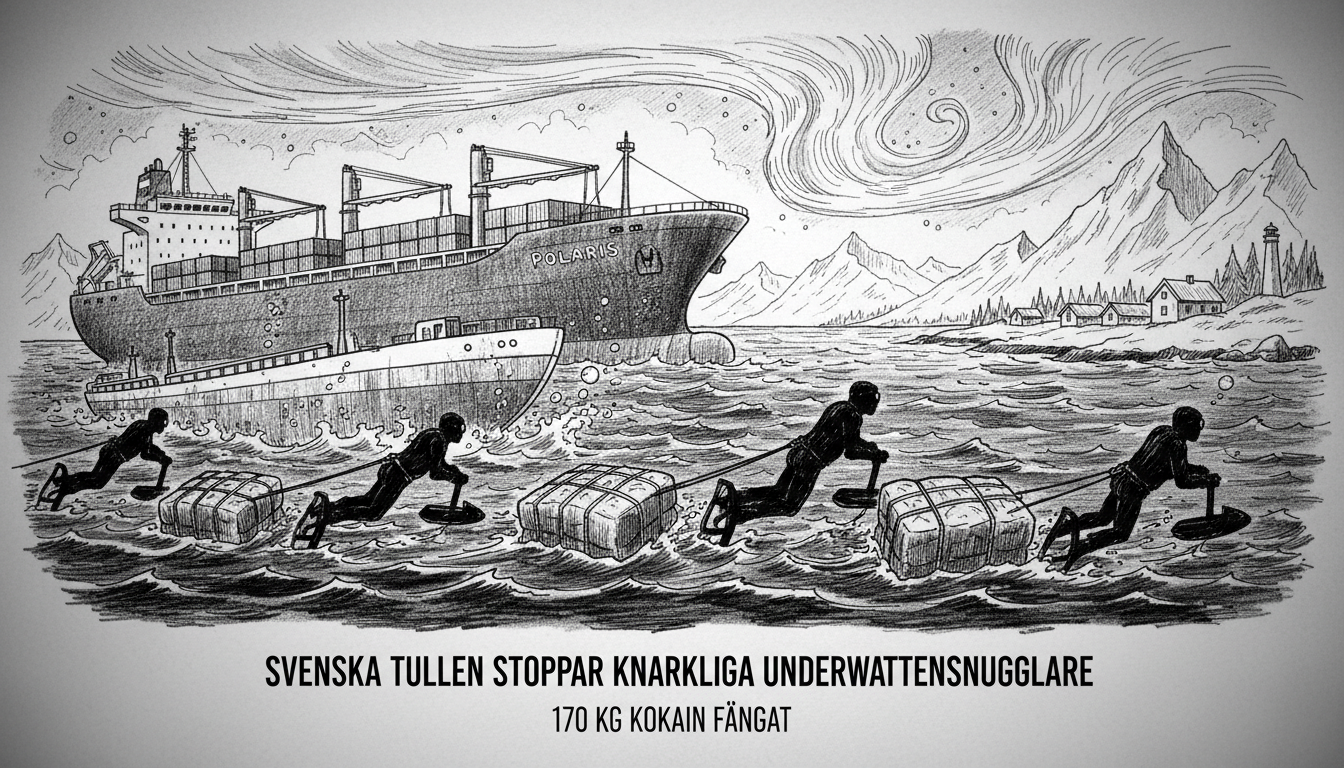Swedish authorities have dismantled a sophisticated narcotics smuggling operation that utilized underwater scooters to retrieve cocaine from ship hulls. Three individuals now face charges for exceptionally serious drug smuggling following a coordinated investigation across multiple Swedish regions.
The Swedish Customs Administration uncovered the criminal network when inspectors stopped a foreign camper van at the Öresund Bridge crossing. Officers discovered two underwater scooters inside the vehicle, triggering immediate suspicions about potential smuggling activities. Richard Johansson, group manager at the Customs Criminal Department West, explained the methodology in an official statement. He noted that using divers to retrieve narcotics placed on ship hulls below the waterline represents a known smuggling technique among international drug traffickers.
An extensive surveillance operation led authorities to Ljungskile, where investigators located 170 kilograms of cocaine with an estimated street value of 160 million Swedish kronor. The discovery occurred in two separate vehicles connected to the smuggling network. During their time in Sweden, the suspects visited diving equipment stores in Gothenburg and purchased moving boxes and work gloves in Uddevalla, activities that raised further suspicions about their criminal intentions.
GPS data revealed that two of the accused men traveled from the Spanish port city of Huelva in a rented camper van during mid-May. Their route included multiple stops at locations corresponding to the suspect vessel's itinerary, including Riga. Customs officials documented nighttime activities at all these locations, indicating coordinated smuggling operations.
Authorities believe the smugglers successfully retrieved approximately 240 kilograms of cocaine attached to a vessel in Uddevalla harbor. The exact identities of the divers involved remain unclear, highlighting challenges in prosecuting such sophisticated operations.
This case reflects broader patterns in European drug smuggling where criminal organizations increasingly employ advanced technical methods. Similar incidents have occurred in Gothenburg harbor, where customs officials previously seized cocaine attached to large cargo vessels. Martin Norell, a customs expert, acknowledged the difficulty in estimating prevalence from a Swedish perspective but suggested the dark figure of unreported cases likely remains substantial.
The Swedish government continues to strengthen border security measures amid growing concerns about organized crime exploiting maritime transport routes. Recent Riksdag decisions have allocated additional resources to customs enforcement, particularly targeting sophisticated smuggling methods that threaten national security. Stockholm politics increasingly focuses on cross-border criminal networks as European drug markets expand.
Swedish Parliament members have called for enhanced international cooperation to combat drug trafficking through Scandinavian ports. Government policy in Sweden now prioritizes disrupting criminal logistics chains that utilize technical equipment and professional diving operations. The case demonstrates how Swedish authorities must constantly adapt to evolving smuggling techniques that exploit the country's extensive coastline and busy commercial ports.
Customs officials maintain that such interceptions represent only a fraction of the actual smuggling activity occurring through Swedish waters. The successful prosecution of this case nevertheless marks an important victory for law enforcement agencies combating transnational drug networks. The three accused men now face severe penalties under Swedish narcotics legislation if convicted of the exceptionally serious drug smuggling charges.

